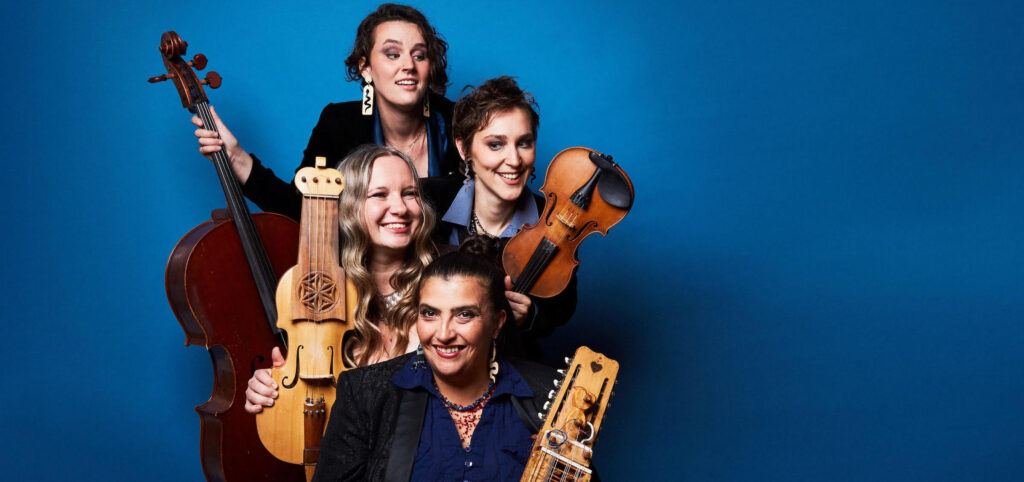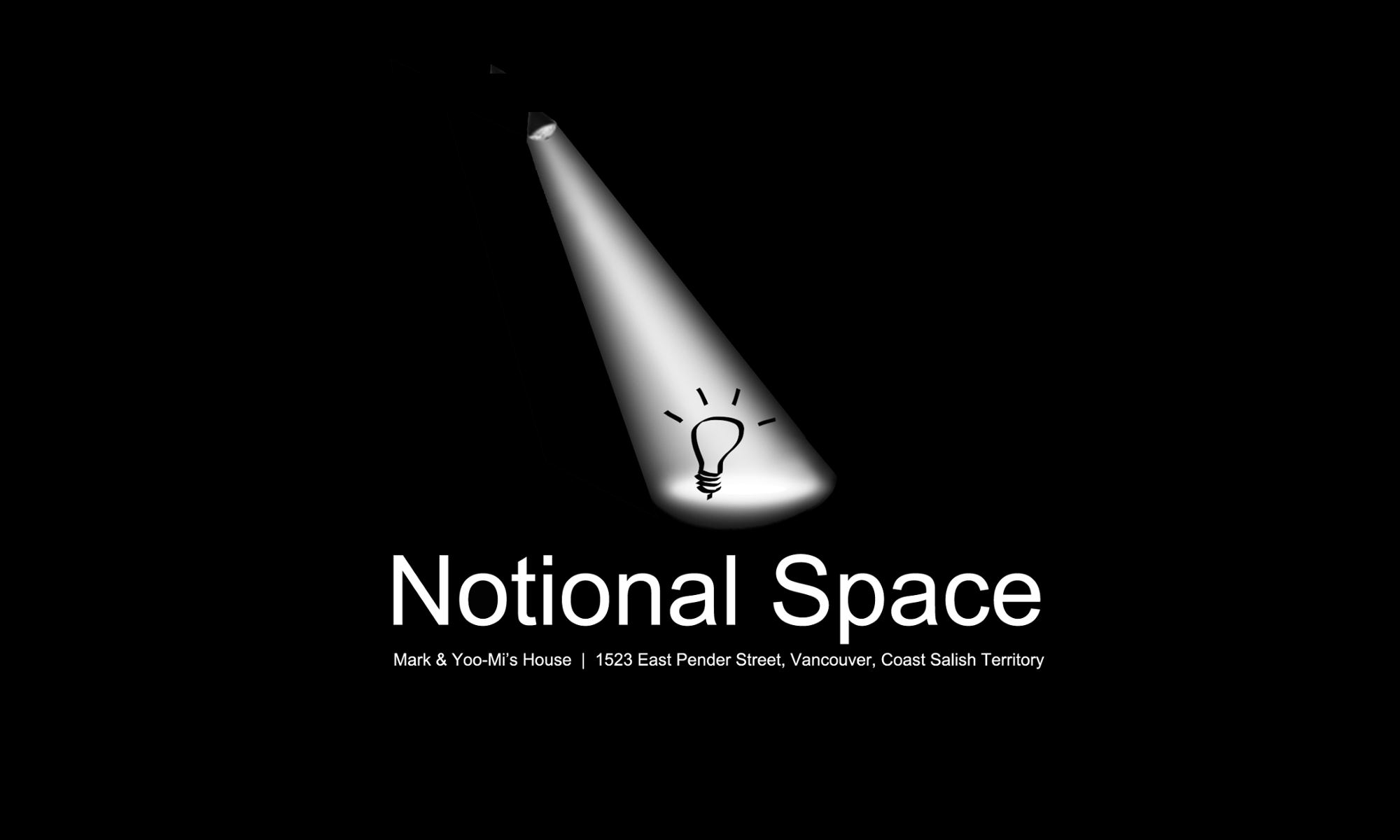MEDUSA QUARTET
WednesDAY, 26 JUNE 2024 | DOORS AT 19:30, MUSIC FROM 20:00

Wielding a sound that would turn classical music scholars to stone, these four folk musicians are reimagining the Western string quartet. By reviving string timbres previously regarded as too ugly for “polite society,” Medusa tempts us to redefine what is beautiful.
With their Canadian Folk Music Award (CFMA) Nominated debut album, Medusa’s dynamic arrangement style cross-pollinates the sounds of Middle Eastern, Scandinavian, Celtic, Appalachian, and Eastern European music, as well as original tunes, to create something previously unheard. With this debut release, the band aims to connect audiences across dividing lines of culture and identity to reveal the common threads beneath.
Medusa is Georgia Hathaway, Lea Kirstein, Marta Sołek, and Saskia Tomkins. Notional Space devotees will know Georgia from concerts with their fabulous band, The Wilderness Inside, from their wonderful work in Tom Richard’s “Shoreline”, and from their recent solo concert; and they’ll remember Lea from her appearances in the duo Citizen Jane.
For these four seasoned string players, whose collective experience in successful bands spans decades, Medusa is a refuge for natural creation. Their immediate and electrifying connection is transmuted through a common string language, a love of enigmatic and obscure folk fiddles, and their personal stories of navigating society’s liminal spaces.
One of the most misunderstood figures in ancient mythology, Medusa was wrongfully punished and cast out for being the victim of a violent act, but is remembered solely for her frightful ugliness and lithifying gaze. Through their personal narratives of alienation due to racism, sexism, immigration, queerness, and disability, Medusa the band aims to retell this story by bringing back what has been cast out. Marta Solek and Saskia Tomkins resurrect the Suka, the Płosk fidel, and the Nyckelharpa – near-forgotten traditional folk fiddles with disreputable connotations that were rejected for centuries in their home countries of Poland and Sweden.
Instead of a snake-haired Gorgon, they see Medusa as a symbol of vision, power, and inclusivity, and a source of inspiration for anyone who has been denied their true self.
